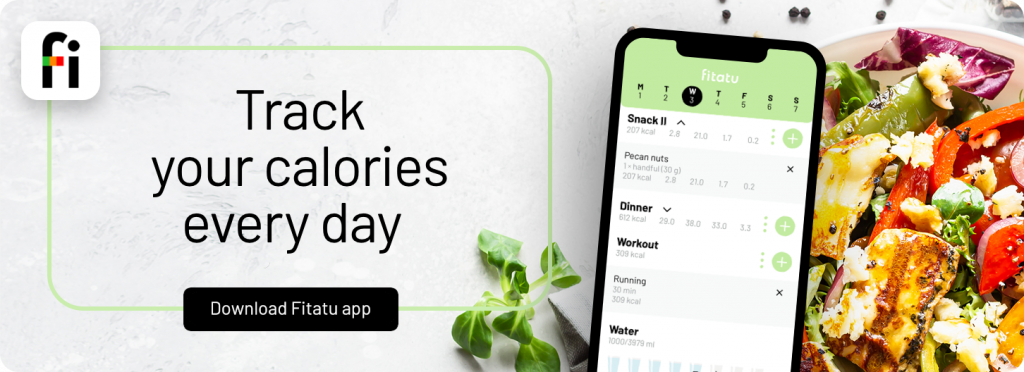Building muscle mass and caloric surplus

How to determine the caloric value of a diet for muscle building in order to achieve optimal results? We will also look at why training is a fundamental element in the process of building muscle mass and whether a caloric surplus is necessary for it to proceed correctly.
Building muscle mass is a process that requires not only hard work during workouts but also a conscious approach to diet. Proper energy expenditure, a balanced diet rich in essential nutrients, and adjusting pre- and post-workout meals to the individual needs of the body are key to success.
Energy expenditure of workouts
Energy expenditure depends on many factors, including gender, age, body weight, intensity and duration of workouts, and recovery time after exercise. The variety of factors makes it very difficult to accurately estimate energy expenditure, but it is also very important when building muscle mass. Underestimating energy expenditure during training can result in an energy deficit. This affects not only the increased feeling of fatigue during exercise, loss of strength, or reduced workout intensity but also slows down or stalls progress, and may even lead to muscle loss. On the other hand, overestimating energy expenditure for workouts can result in too large of a caloric surplus, which will not contribute to muscle growth but will lead to an increase in body fat. It is important to remember that workouts are not the only time energy is expended; daily physical activities such as walking, cleaning, running to catch the bus, or playing with children should also be considered.
Kilogram of muscle vs. Kilogram of fat
During muscle building, a general goal becomes the reduction of body fat. It is important to remember that a kilogram of fat is not equal to a kilogram of muscle. Body fat is an energy reserve, with 1 kilogram storing over 7500 kcal. Fat tissue is primarily made up of fat. Muscle, on the other hand, consists mainly of water and also contains protein and other components in smaller amounts. A kilogram of muscle contains only about 1250 kcal.
Muscle growth or protein synthesis
The human body is not pure mathematics, so this does not mean that an additional 1250 kcal will give us one kilogram of new muscle. Just like the digestion of protein requires increased energy, muscle creation is also an energy-intensive process. Protein synthesis requires about 0.85 kcal to create 1 g of muscle. However, in addition to synthesis, the body undergoes protein exchanges and other side processes such as digestion. Protein synthesis is also influenced by factors such as energy availability, carbohydrate and protein intake, and the use of stimulants. If you are interested in how to replenish protein and carbohydrates and what a complete muscle-building diet should look like, be sure to read this article.
Caloric value of a muscle-building diet
To summarize the information from the previous paragraphs, if you want to build muscle mass, make sure to provide enough energy. The cost of building muscle mass is significantly higher than the amount of energy stored in the muscle. But how much should this surplus be? There is no definitive answer to this question, as the diet should be tailored to the individual. For individuals with low body fat, a surplus of a few dozen calories will be too small, while a surplus of a few hundred calories should yield visible results. For most people, a surplus of 300-500 kcal will be appropriate, but it should be emphasized that when determining the caloric value of the diet, an individualized approach is recommended. The recommended weight gain is about 0.25% of body weight per week, with a maximum increase of 0.5%. For overweight individuals, it is best to focus on weight loss first and only later focus on building muscle tissue. When building muscle mass, it is advisable to regularly, preferably once a week, check body composition and measurements. Only by observing the body can one assess if the caloric value of the diet is appropriate.
Training is key
To successfully build muscle mass, the most important factor is training, which must accompany the process of muscle growth. Only micro-damage to muscles during training stimulates the muscles to grow. During the training period, don’t forget about peri-workout nutrition; an appropriate diet will support muscle growth, ensure proper recovery, and provide the energy needed for intense effort.
Fitatu® Support Group
Reaching your goal is easier with the support of others! Join our Fitatu Facebook group and achieve your goals together with other Fitatu® app users. With the group members, you can share your results every day and motivate each other to keep going.

Fitatu® App
Download the app from the Google Play Store or Apple Store and start tracking your macros with us!
Prefer the web version? No problem. A basic web version is available for our subscribers.
What else is included in Fitatu® Premium?
- over 2000 recipes, plus dozens of new ones every month,
- additional intermittent fasting plans,
- the ability to create shopping lists,
- 7 ready-made meal plans,
- filtering products and recipes,
- more sync options with fitness apps,
- access to the web version of the app,
- no ads!





